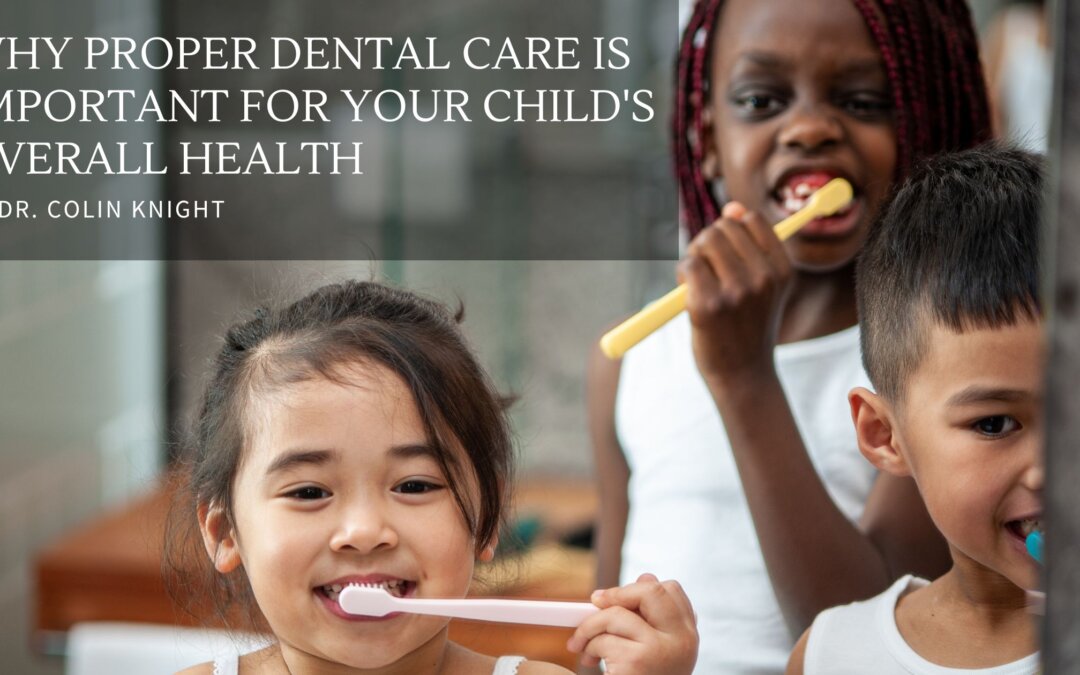Dental care, though often relegated to the background of childhood health concerns, is integral to a child’s overall well-being. Maintaining a child’s oral hygiene is pivotal in safeguarding them from infections, ensuring proper nutrition, and fostering self-esteem. Early in life, establishing robust dental care habits can set the stage for lifelong health and wellness.
Historically, the mouth was treated as distinct from the rest of the body. However, contemporary research underscores the intricate connection between oral health and systemic well-being. Dental issues, especially if unaddressed in childhood, can usher in many health complications, some extending far beyond the oral cavity. As our understanding deepens, the emphasis on early pediatric dental care becomes all the more paramount. Recognizing these connections is the first step toward holistic child health.
Prevention of Systemic Infections
A child’s mouth, teeming with bacteria, can become a gateway for infections. Neglected dental care can lead to cavities and gum diseases like gingivitis. These conditions, if unchecked, can evolve into more severe disorders like periodontitis. The sinister aspect of such oral infections is their potential to become systemic. Bacteria travel through the blood to other body parts, leading to widespread inflammation or infections in vital organs such as the heart. Endocarditis, a condition of the heart’s inner lining, can be a byproduct of oral bacteria entering the bloodstream. Hence, consistent dental care practices in children can serve as a protective shield against such potentially life-threatening conditions.
Facilitation of Proper Nutrition
Teeth play an indispensable role in nutrition. They aid in the mechanical breakdown of food, a precursor to efficient digestion and nutrient absorption. Dental issues can hinder this process significantly. A child with dental pain or misaligned teeth may struggle to chew, prompting them to avoid certain nutrient-rich foods, especially crunchy fruits, vegetables, or protein sources. This selective eating can lead to nutritional deficiencies, hampering growth and overall health. Cavities and oral discomfort can also deter children from eating, leading to inadequate caloric intake. Thus, maintaining optimal dental health ensures children can comfortably consume a balanced, nutrient-rich diet, fostering proper growth and development.
Enhancement of Self-Esteem and Social Well-being
Beyond physiological aspects, dental health can profoundly impact a child’s psychological well-being. A radiant, healthy smile can bolster self-confidence, while dental issues can make children self-conscious, affecting their social interactions and mental health. Dental anomalies, visible cavities, or bad breath can become focal points for teasing or bullying in school settings, leading to social withdrawal or depression. Early dental interventions prevent such aesthetic and functional concerns and empower children with the self-assurance to navigate social scenarios with poise.
The repercussions of neglecting oral hygiene stretch far beyond cavities or gum disease; they permeate into systemic health, nutritional well-being, and psychological fortitude. As parents, caregivers, or health professionals, recognizing and acting upon the symbiosis between dental and overall health can chart the course for a child’s holistic well-being. Initiating proper dental care routines early, paired with regular dental check-ups, is an investment that yields multifaceted dividends, sculpting the trajectory of a child’s health and happiness.
